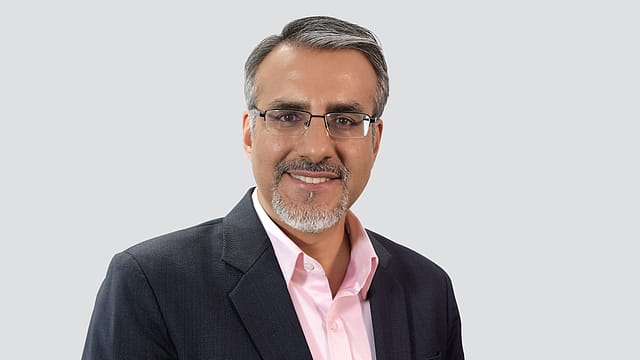Sun Mobility-Indian Oil JV to scale up battery swapping: Chetan Maini
ADVERTISEMENT

Indian Oil Corporation's 50:50 joint venture with Sun Mobility will help scale up battery swapping stations across the country, says Sun Mobility co-founder and chairman Chetan Maini.
Maini, the founder of Reva, India's first electric car, says range anxiety and charging infrastructure challenges motivated him to get into battery swapping.
As part of the JV, Indian Oil has committed an investment of ₹1,800 crore over the next three years. This will help the JV to scale up to more than 10,000 battery-swapping stations across 40 cities. Indian Oil will also invest $78.3 million in Sun Mobility.
Indian Oil also brings brand value as the average customer who opts for battery-as-a-service mobility solutions wants to be assured that this swapping infrastructure will exist in the future, says Maini. “This gives customers the comfort that there is access and availability anywhere,” he says.
Sun Mobility, which counts Bosch and energy trader Vitol among its investors, currently operates 650 swapping stations that are capable of doing 1.2 million battery swaps each month. “Our stations are high throughput. One station can cater to 200 vehicles in a day,” says Maini.
Sun Mobility-operated swapping stations use interoperable batteries that can be used in two-wheelers, three-wheelers and e-rickshaws. “The same station dispenses across every OEM platform and every vehicle type,” Maini says.
January 2026
Netflix, which has been in India for a decade, has successfully struck a balance between high-class premium content and pricing that attracts a range of customers. Find out how the U.S. streaming giant evolved in India, plus an exclusive interview with CEO Ted Sarandos. Also read about the Best Investments for 2026, and how rising growth and easing inflation will come in handy for finance minister Nirmala Sitharaman as she prepares Budget 2026.
Being platform agnostic has helped the company with better utilisation rates. “Utilisation of charging stations is at 1% today. Utilisation at our battery swapping stations is up to 80%,” says Maini.
“If you are building infra only for scooters, the business model will not work as you will have peaks,” the industry veteran says.
Electric two-wheeler retail sales in India grew 72% year-on-year to 79,530 units in June. But they make up just 5.7% of total two-wheeler sales in the country as customers are still sceptical about battery life, resale value and high upfront costs.
“When there was a regime of subsidies, which is now moving down, everyone was okay to put batteries in vehicles because you got a lot of concessions. As subsidies disappear, it becomes difficult for the consumer to adopt EVs,” says Maini.
While there is no silver bullet, Maini believes all solutions for electrification will coexist but swapping will play a big role as it addresses the fundamental concerns of a customer.
Under battery-as-a-service model, a customer buys a vehicle without the battery which reduces upfront costs, making it cheaper than ICE. “By swapping it in a minute, you address the range anxiety and refuelling time. In battery as a service, you continuously upgrade your battery over a period of time, the customer doesn’t have to worry about warranty,” says Maini.
Battery swapping also helps with residual value concerns around EVs, says Maini. “As technology changes, if you are buying a vehicle with a fixed battery, then over time it comes down in performance. When your battery is serviced, you get upgrades and you don’t have to worry about resale value,” he adds.
Globally, battery swapping is becoming mainstream not just in the two and three-wheeler space but also in trucking, says Maini. 50% of all electric trucks sold in China last year depend on battery swapping, he says.
In battery swapping, a customer pays as per energy consumed. At Sun Mobility’s swapping stations, a fully charged 2.1 kWh battery is available for about ₹70 while a 1.5 kWh battery is about ₹50. Sun Mobility currently operates in the business-to-business (B2B) segment where utilisation is high and economics make sense.
